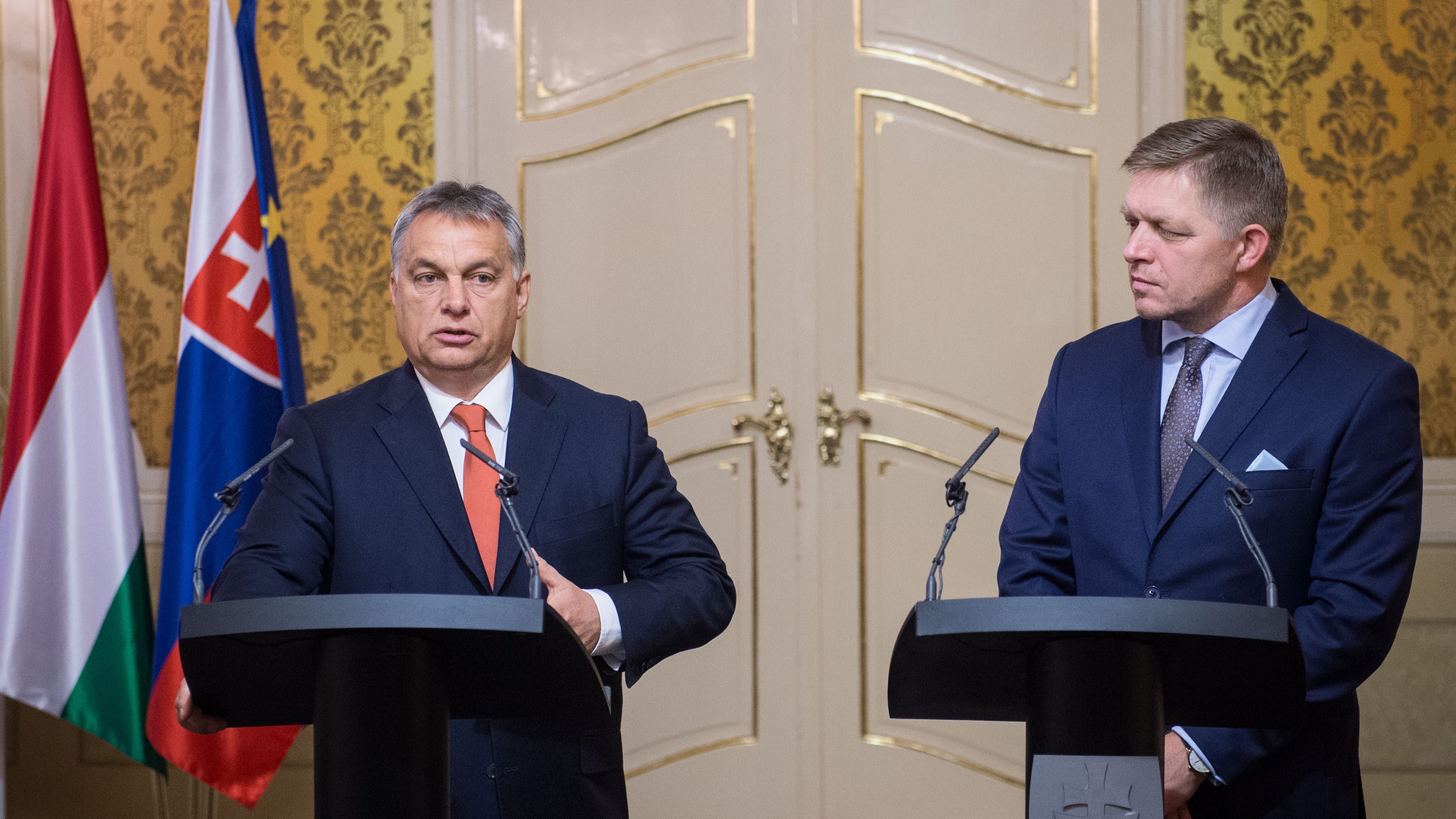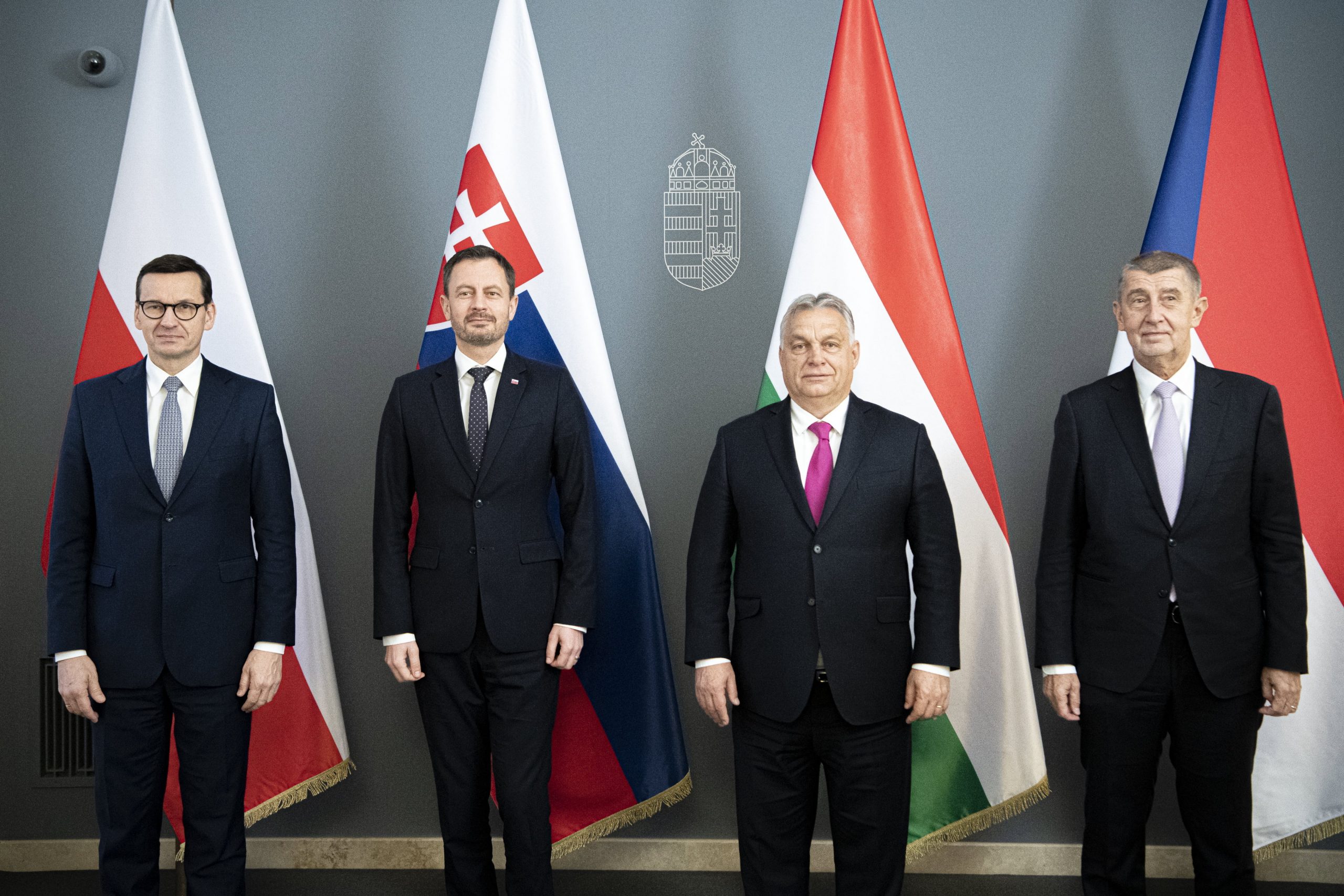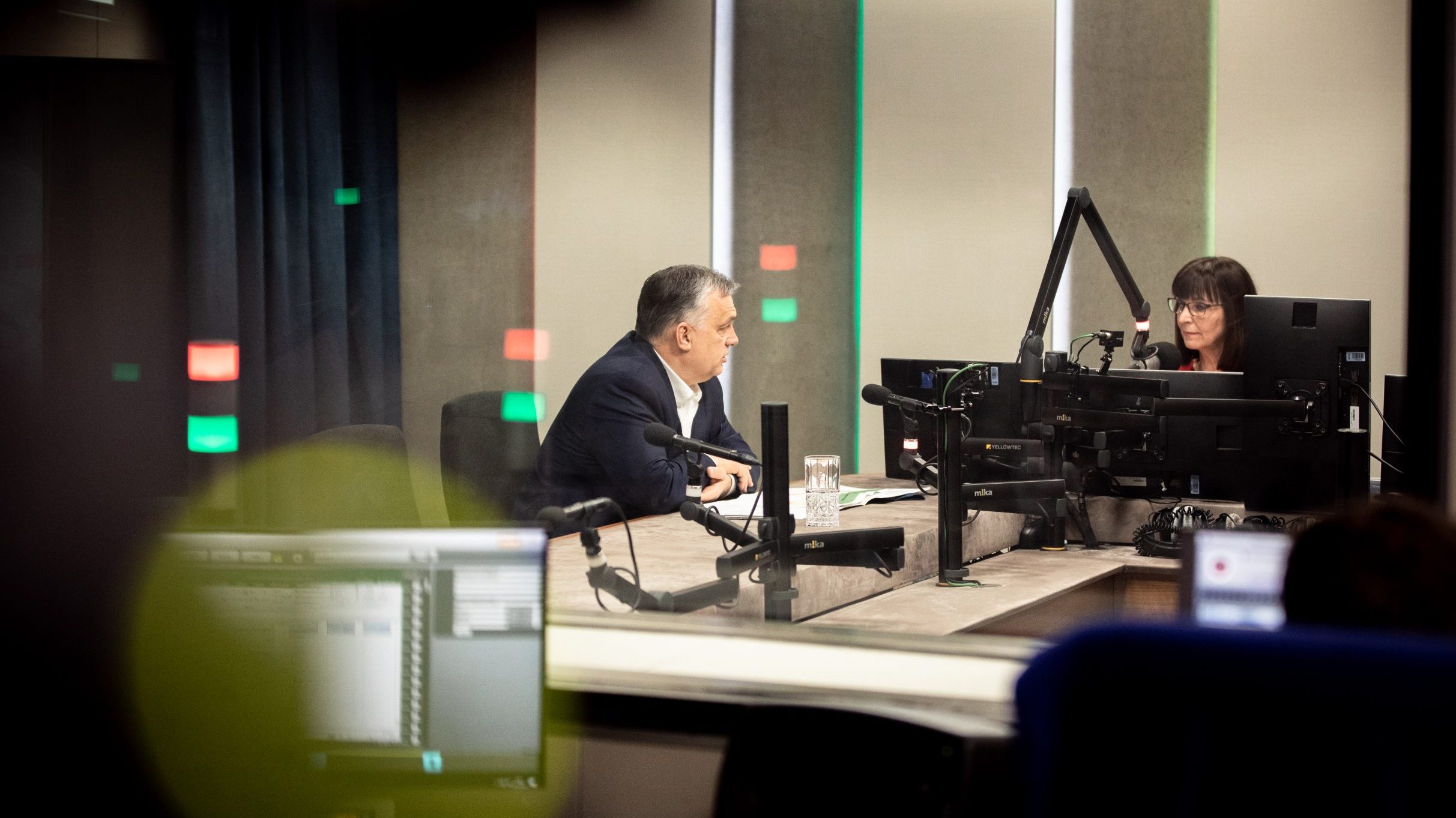
In his press statement – made jointly with the Prime Minister of Slovakia, which currently holds the EU presidency – Mr. Orbán highlighted that the Hungarian Fundamental Law must be supplemented to stipulate that no one may impose any mandatory resettlement quotas on the Hungarian people. The Prime Minister said that he had come to tell his Slovak partner that the prospective constitutional amendment will remain within the boundaries of the European legal system. He stressed that – in the event of a major population movement – a mandatory resettlement quota mechanism with no upper limit on numbers could destroy the results which “we have achieved, and could destroy everything we have worked so hard for”.
Referring to the referendum, the Prime Minister said that since 1990 – since the beginning of Hungarian democracy – “no referendum has demonstrated such overwhelming unity of will”. Despite the fact that the Hungarian constitutional system imposes very demanding conditions on the legal force of a referendum, he said, what has now happened is that three million three hundred thousand people have expressed their united will, and this fact cannot be ignored.

Mr. Orbán said that as in the current circumstances the referendum has no constitutional consequences, Parliament must now bring these consequences about; the Constitution must be amended, in order to ensure that the Hungarian parliament alone has the authority to decide whom we live together with.
The Prime Minister said that the Treaties of the EU lay down the concept of national identity; and a country’s territory, population and form of government are part of national identity, which is inviolable.
The Prime Minister also said that at the beginning of this year, European prime ministers decided that the Schengen system must be restored by mid-November 2016: the external borders must be protected and the border controls temporarily reinstated within the Schengen Area must be removed. He asked Robert Fico to enforce this decision.

Mr. Orbán stated that Slovakia is a success story, and one can clearly see the progress that has been made. “We, too, are trying hard” in Hungary; these achievements did not come as gifts, and the Hungarian achievements likewise did not come out of nothing. The Slovak and Hungarian peoples have worked hard for their achievements, he said.
He pointed out that the mandatory resettlement quota system could, however, destroy these results.
“Europe is not a transit zone”, Hungary is not a transit zone, and obviously, the Slovaks likewise do not want their country to turn into a transit zone, he stressed.

The Prime Minister highlighted that “we do not want criminals and we do not want acts of terrorism either”, but we want to protect the security of our citizens, and the results we have achieved. Hundreds of thousands of migrants illegally crossed Hungarian territory. This is not a theoretical problem, but reality, he said. He added that hundreds of thousands of people stormed into a country with complete disregard for our legal system, and some of these “then killed dozens of European citizens in Paris”.
Mr. Orbán said that we like to live in security, but what happened in Paris may also happen in Bratislava and Budapest, and “the stakes are high”. He therefore asked Robert Fico to treat the issue with the seriousness it deserves, because prime ministers are responsible for the security of their people. He asked the Slovak prime minister to support the removal of the mandatory resettlement quotas from the agenda of the EU.

Mr. Orbán said that he had come to give information of the referendum to the incumbent President of the EU, adding that the Hungarians have always attributed great significance to the fact that “the Member States take turns in holding the EU presidency”. According to the Hungarian way of thinking, the European Union is not in Brussels, but in Bratislava, in Warsaw, in Budapest, in Bucharest, in Berlin or in Paris, he explained. He added that the EU does not belong to Brussels, “but to the community of free nations”, and Europe must remain a community of free nations.
Regarding bilateral relations, the Prime Minister remarked that “we have a great many splendid common plans”.


